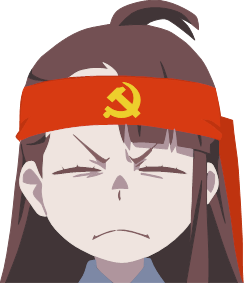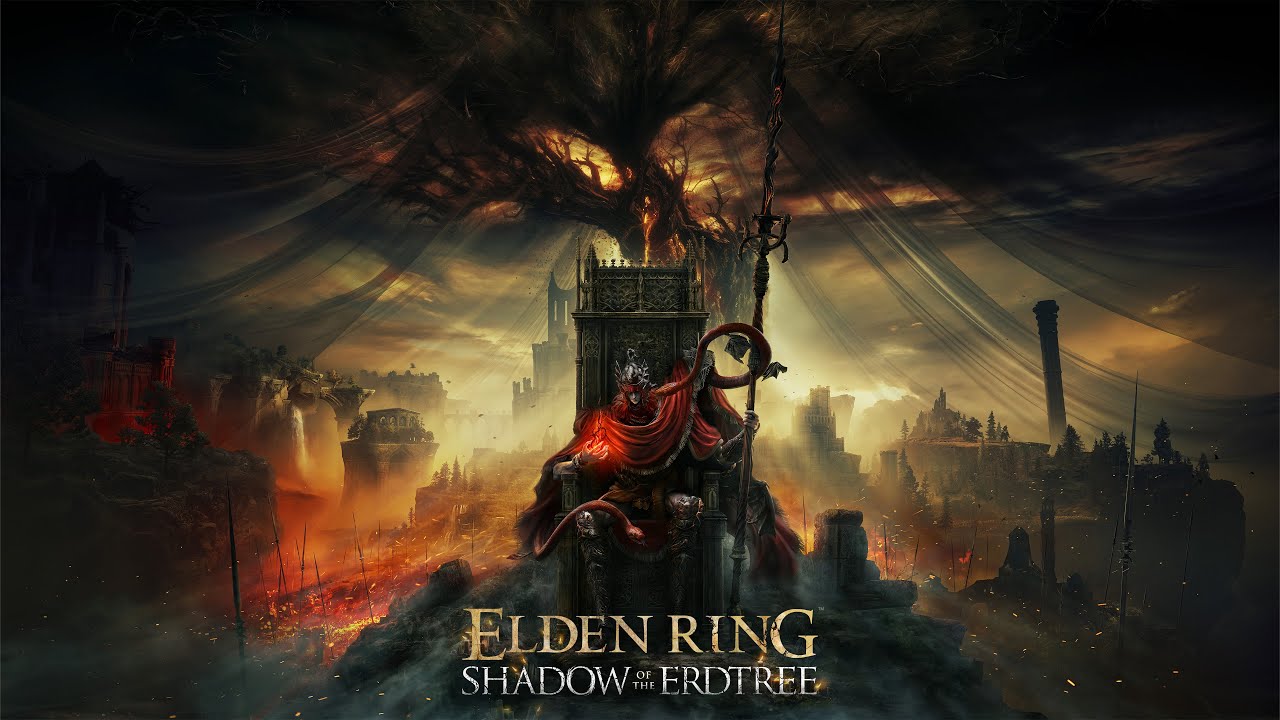KobaCumTribute [she/her]
- 13 Posts
- 122 Comments

 5·2 days ago
5·2 days agoFrom where?
A neighboring country, either Soviet or Western depending on the currency you use for this.
Firstly, why does your state not have construction workers?
Because you don’t have local construction coordinating offices and vehicle depots yet, so you’re relying on outside help.
Secondly, why can’t you requisition the workers from the USSR or another planned economy?
You do, but they want compensation. It’s kind of a gamification of… Actually, you know what? Given the time period it defaults to (starting in 1959), I’m just gonna blame Khrushchev. Maybe it’s an alternate history where he was even more revisionist and did more Gorbachev level dipshittery with trying to liberalize the central planning.
A more realistic answer is that you’re entirely independent and just maintain neutral terms with both the Soviets and the West, so even though you can freely trade with both neither is going to come in and build things for you or make any sort of demands of you. Which is ludicrously unrealistic considering you’re sitting on huge deposits of oil, coal, metals, and uranium, but that’s city builder logic for you.
Why can’t you source it from your own state? Why are your options limited to either producing the resources within the city,
You’re running an independent border republic roughly the size of something like Andorra, maybe a little bigger. Everything outside your borders is foreign, even the Soviets.

 10·2 days ago
10·2 days agoWhen you buy buildings you are buying the resources, having them shipped in, and having foreign contract workers come in with that to actually build it for you using their equipment. It’s just it abstracts this away for the sake of gameplay. It’s like when buildings are purchasing and importing the goods they need, it’s abstracting the actual delivery of them from outside.
It may be a game setting to enable a more complicated build option (so if you’re still in the tutorial campaign this may be disabled, I’m not sure), but if you look down at the right corner where you have “finance with rubles” and “finance with dollars” boxes, there should be a third one to the right of them that uses local resources and labor. That doesn’t cost money (directly, but if you’re filling warehouses of material with the auto-import purchase option that will cost money) but requires construction offices staffed with transport and heavy construction vehicles, as well as busses to take workers to the site, and you need to be sourcing all of those things from somewhere.

 2·2 days ago
2·2 days agolike I need the villain speed 4% faster.
That’s just NOED.

 4·2 days ago
4·2 days agoIIRC it established two separate levels of the disease that’s basically the same as the later ghoul/feral ghoul divide in Fallout. So there were vampire zombies that hunted people - including each other - and ones that had managed to stabilize the condition with medical treatment. He hunted them indiscriminately, and it was the latter group that managed to take him out with an organized military strike on his fortified compound.

 3·3 days ago
3·3 days agoI don’t know what the problem I was running into was then.

 4·3 days ago
4·3 days agoI don’t know what the deal is then, because that was the very first thing I tried: setting up a route between bus stops expecting them to work like in Cities: Skylines only to watch as empty busses just circled around between stations and never, or almost never, picked anyone up even when there were people waiting there. It wasn’t until I learned you could target individual buildings as stops that busses started filling up.

 4·3 days ago
4·3 days agoNo, “If a citizen is unable to find a building that they’re looking for in walking range, they will instead walk to a nearby public transport station where they wait to be picked up by a vehicle, and willingly disembark at the first station that has their desired building in range”
I have not been able to get that to work. If the route just goes through stations no one ever boards and it just cycles empty busses indefinitely even with full stations. It’s only when I start pointing the bus at specific buildings that they start filling up and working as expected.

 10·3 days ago
10·3 days agopeople walk only a certain distance of i think 100 meteres
I think this depends on the type of path they have? Like they’ll budget their route to walk for up to X amount of time to reach a location, and the distance is determined by how far they walk in that time? The furthest I’m seeing for “within walking distance” of some buildings is just over 450m with the full 100% walking speed paths along the whole route. Unless this is further modified by a game setting - I went into the campaign (not the tutorial one) with whatever settings it defaults to.
you get a bus depot, buy the busses, and then assign them all routes there.
Right, with the caveat that the routes themselves have to be pointed at buildings to drop people off at, not just other stops. If a bus isn’t going directly to a potential workplace, school, or shop no one will board it and it took me entirely too long to figure that out.
Like bus stops (and I assume passenger rail platforms) aren’t set up to shorten pathfinding to desired locations, they’re a place of last resort that unfulfilled citizens go in the hopes that a bus that can take them to a desired location type shows up at some point.
And to answer my own question: they do seem to just teleport home when they finish a task, they don’t gather to be brought back. That’s another unintuitive thing coming from Cities: Skylines, that traffic isn’t like a back and forth sort of thing for anything but the dedicated vehicles that go through specific routes. Maybe citizens with personal cars are different? Or maybe this a mechanic hidden behind one of the settings, idk.

 13·4 days ago
13·4 days agoWhy is it that men who get the tinniest taste of wealth and power open palm slap the “become a pedophile” button?
I think it’s because it’s not distinct from the typical predatory and pathological sexuality that a lot of men are socialized into, and how entrenched the infantilization of women is in misogyny in general. They already see women as lesser beings to be owned and used as they please, and have internalized the idea that wealth entitles them to do this and protects them from consequences, so it’s a simple matter to expand their range of desired victims from adult women to teenage girls.
And that phenomenon is everywhere in American society and has been deeply entrenched for longer than anyone today has been alive. It’s an integral part of American patriarchy and it’s only in the past couple of decades that there’s been any serious - or at least successful - effort to stamp it out.

 1·5 days ago
1·5 days agoYeah. Then for the ones that don’t, you just use the dragon communion seal to cast stone of gurranq until they die.
Or at least that was the go-to when I played through. I’m going to start a fresh playthrough on the current patch, as soon as I can manage to kill the damn grafted scion in the tutorial again. I did it on what went on to become that arcane whip character back then, so I just need to shake the rust off and get back into the swing of the game now.

 9·6 days ago
9·6 days agoas a strength user seemingly was impossible to do anything without a not strength build.
A strength build in elden ring is kind of hardmode in its own right. You get some really strong options for some bosses, but you’re still generally stuck with slow melee weapons that you basically have to already know a fight very well to use. I went into it the first time with an ultra-greatsword build and did mostly fine up until reaching some of the later bosses, while my second playthrough I went arcane with dual whips and just rolled everything without trouble.
Which makes me wonder if the game was intentionally balanced around players using them for every boss fight.
It definitely feels like it. The game actively pushes it in your face and says “here use this,” they’re a frequent reward for clearing dungeons, and there’s even some quest content that requires you to use them to make things happen. They’re not mandatory, but they seem like the expected choice. Especially since there’s the tradeoff that they make bosses more erratic and rarely do all that much on their own - they’re a force amplifier when used right, but it’s easy for them to make a fight harder and then die without contributing.

 9·6 days ago
9·6 days agoI’ve actually never finished a full game of Stellaris. I usually play max-size galaxies, so that might have something to do with it,
That’s definitely a strong contributing factor imo. For as many games of it I’ve started the only one I actually stuck with all the way to the end was one minimum size galaxy fanatic purifier run with a species of adorable butterflies. Any bigger than that and eventually it just hits a point where not only is trying to stay on top of planets a chore but it stops feeling like there’s even a point to it since I’ve snowballed to such a point that I can just brute force whatever’s left while slowly waiting for that to finish.
I did have one particularly long running game with an empath tree of life spider hivemind that wound up as the permanent head of a huge federation that also became the sole galactic community security council member and made war impossible, putting the galaxy in stasis with nothing left to do but run out the clock since even the crisis couldn’t put a dent in it. That game I played extremely tall (after getting penned in by my loyal allies/federation and some fallen empires) and just relied on barbaric despoliation to capture pops (for livestock) from whoever my federation declared war on to keep my economy growing. I did eventually abandon it once it became a waiting game, though.

 4·6 days ago
4·6 days agoMaybe. I don’t know if they just kind of planned poorly and struggled to advance the plot to hit the major events they wanted or if there was executive meddling or the like taking an axe to the story towards the end. Because like I said in another comment, it almost feels like a completely different story after episode 7, like someone came in and said “nope, too gay, cut it all out” and got rid of even any more yuri bait apart from a few fragments like just what Kano was focusing on while breaking down after her fight with Mahiru.
I don’t mean to sound too bitter about it, I’m just disappointed with where it went, especially after all the glowing praise I had for it early on. It’s sad, and I do wish there were more episodes left to maybe fix this, but at the same time I know that either the writers or studio intentionally made it the way it was and I don’t believe the reason was they didn’t have the time to develop Kano and Mahiru more given they both were basically just treading water starting around the 8th episode.

 7·7 days ago
7·7 days agoBasically. There’s a trans character and that was handled reasonably well, but the sort of core storyline of both Kano and Mahiru just sort of faceplanted towards the end in a way that feels so weird and drastic that I can’t help but wonder if it wasn’t rewritten. All the themes of defiance and openly chasing what makes you happy despite social scorn just evaporated completely, it tries to recuperate and humanize the two largely-absent and irrelevant antagonist characters for no reason and with no payoff, the two main characters grew more distant in a way that was narratively unsatisfying and didn’t really lead into anything, and their reconciliation was tepid and disappointing. Like I can’t stress enough that it feels like the story was building up Kano and Mahiru’s relationship and personal character growth arcs, and then an eraser was crudely taken to the last quarter of all of that and someone else added some filler to connect the shreds of what was left.
It’s really disappointing. Not specifically because it wasn’t queer enough, but because the first seven episodes are great and poignant and sweet, and then with the exception of Watase’s story in episode eleven the last four episodes are really weak and have the other three main characters in a sort of narrative stasis. It would have been fine for Kano’s clear feelings for Mahiru to not be reciprocated, if that had at least been acknowledged. It would have been fine if it had been cut short by a dramatically meaningful conflict between them. But instead just a whole lot of nothing happened, emotions were flat across the board, and then it got a lukewarm ending without even the level of the earlier yuri-baiting moments.

 20·7 days ago
20·7 days agoThat can be expanded to any “the hero nobly denies doing something ‘unethical’ to get what they want/decides to sacrifice their own desires for the sake of someone else, only for reality itself to turn around and reward them with exactly what they wanted/were going to sacrifice as a special good boy treat for doing the right thing” situation, I think.

 36·7 days ago
36·7 days agoThe tacit acceptance of monarchism and aristocracy as normal and legitimate things. Even when there’s intrigue like “oh no, the bad scheming sneaky nobles are doing a heckin scheme against the good and pure and charitable main character friendly nobles, we must make sure the good landed gentry come out on top!” it’s just treated as drama within an inherently legitimate system.
Childish ontologies of good and evil where the good guys are rightful property owners who are nice and good and the villains are disruptive cartoon villains who squabble and betray and do silly cartoon villain things. Further, in that framework the villains are always either barbarous underdogs scheming to take power from the legitimate powerful land owners, or are some sort of fever dream expy of aUtHoRitArIaNiSm that’s either styled as Napoleonic liberal meritocracy as seen by British monarchists or some absurd caricature of the Soviets/China.

 3·7 days ago
3·7 days agoYeah, the whole story just sort of fell apart completely there, losing any sort of drama. Kano and Mahiru just going completely radio silent on each other after their fight even as they just sort of got over it on their own was just so narratively empty and unsatisfying. There was no conflict resolved with the climax, nor was there any real character growth. Kano just sort of got cheered up a bit, did a show, and that was that.
It’s just so disappointing, both in narrative quality and lack of acknowledgement for LGBT themes.

 8·7 days ago
8·7 days agoIt was great, right up until the last episode which fell so flat it retroactively ruined the rest. Like the climax of the series is what? One main character getting to play second fiddle to the worst people in the show, the other main characters getting to go “oh that was cool huh” and that was it, time for a timeskip montage that gives each of them some little extremely individual moment of further character growth. Kano and Mahiru’s arc just sort of fizzled out without any sort of acknowledgement, and then it was over.
Damn, I really hate when my cynicism get vindicated. I feel like that’s even worse than the disappointment with how badly it ended, just knowing that I shouldn’t have been right to be cynical, but I was.

 6·7 days ago
6·7 days agoYep. Extremely disappointing end to an otherwise great show. After all the poignant moments and emotional highs of early episodes, “and then things were just normal and ok, there was some further character growth in montage form, and Kano and Mahiru’s obsession with one another fizzled out without ever actually being addressed” was an extremely flat ending.
Another win for cynicism and never daring to expect anything good from an anime series, no matter how promising it may look to begin with.



In the second campaign, the backstory is that you’re basically supposed to be an eastern european country that was colonized by a western power that built some infrastructure to aid in resource extraction, except you revolted against them, gained autonomy, and established a socialist state of sorts, with your objective being to attain autarky and modernize the scattered villages throughout the country.
So there at least, I’d guess the $2,000,000 balance is from seizing the US-backed dictator’s wealth, and the 10,000,000 rubles you start with were either the result of selling captured western equipment to the Soviets or a sort of hands-off foreign aid grant from alternate timeline more-liberal-brained Khrushchev.
This made me think of two things, one related to the game and one not. The first is that nothing domestically involves currency that you deal with, all the money is foreign currency used for trade; that means that your internal economy is running purely off some kind of labor voucher system and abstracting away both the wages workers earn and what they spend on goods and services as an overall balanced and isolated system.
The second is that AFAIK starting under Khrushchev (IIRC) there was a tacit acceptance of a so-called “second economy” in the USSR, which involved comparatively small scale private exchange for crops grown in personal plots, craft goods, and contract services like repairwork that existed outside the centrally planned institutions.
Tangentially, that’s making me think about the centralized state-run farm equipment depots in the game, and how one of Khrushchev’s more notably hair-brained and disastrous reforms was privatizing that sort of thing so that farmers had to own and maintain their own tractors, which made maintaining them way more expensive and reduced overall agricultural efficiency since “idk lmao everyone do it for themselves” is much worse than having centralized depots staffed by mechanics whose whole thing is maintaining them and who have all the tools and materials on hand to do so in one place. Also that contemporaneous to that in China, farm machinery was rare and the rural communes weren’t really communes yet, so the farmers who’d managed to get access to tractors and the like quickly turned around and became private contractors who’d go and use the tractors on other farmers’ fields for compensation and within just a couple of years of that being the status quo it was already creating a problematic wealth inequality between farmers in general and the sort of contractor tractor-kulaks that had to be addressed by the state.